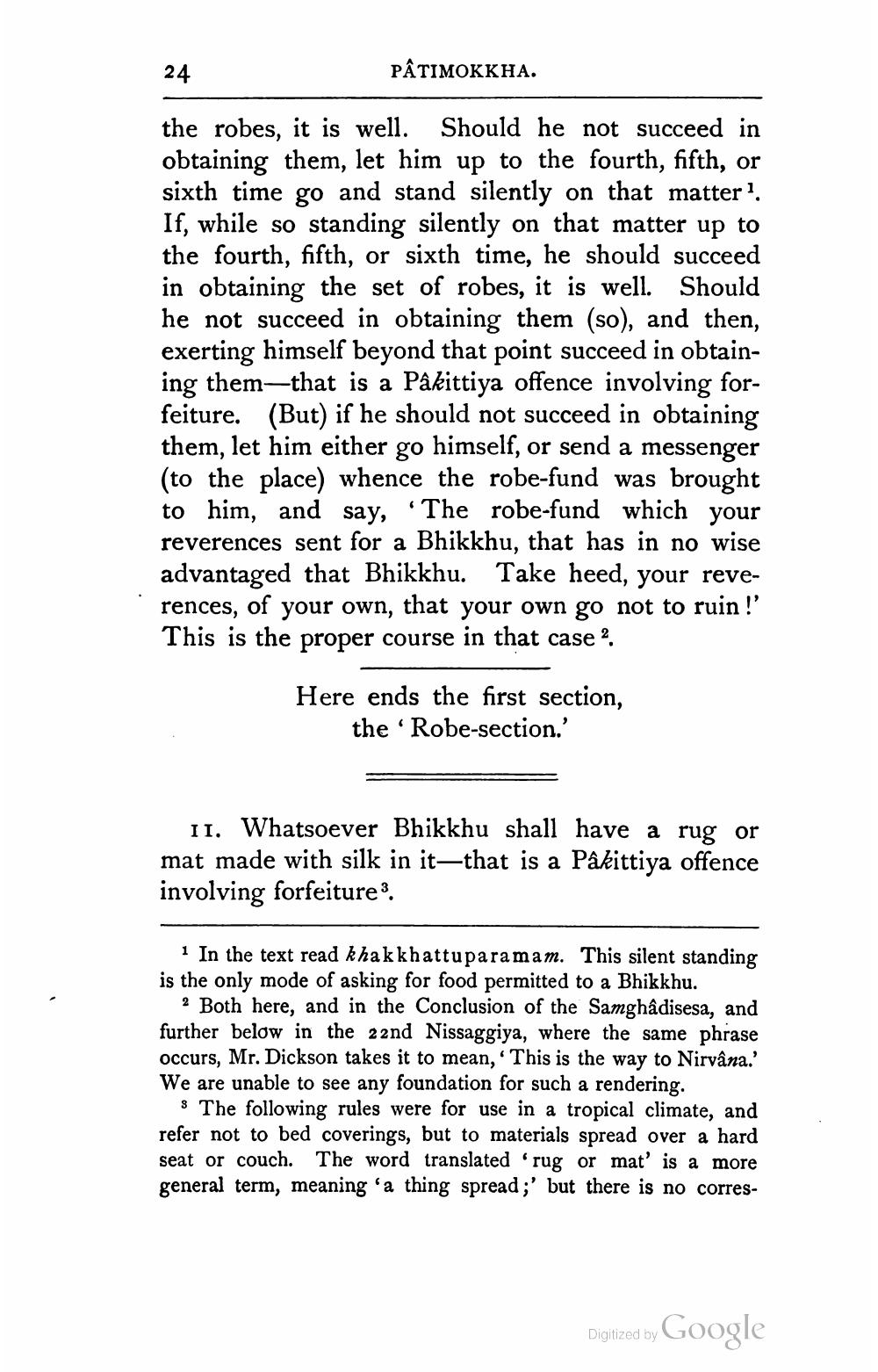________________
24
PÂTIMOKKHA.
the robes, it is well. Should he not succeed in obtaining them, let him up to the fourth, fifth, or sixth time go and stand silently on that matter, If, while so standing silently on that matter up to the fourth, fifth, or sixth time, he should succeed in obtaining the set of robes, it is well. Should he not succeed in obtaining them (so), and then, exerting himself beyond that point succeed in obtaining them that is a Pâkittiya offence involving forfeiture. (But) if he should not succeed in obtaining them, let him either go himself, or send a messenger (to the place) whence the robe-fund was brought to him, and say, "The robe-fund which your reverences sent for a Bhikkhu, that has in no wise advantaged that Bhikkhu. Take heed, your reverences, of your own, that your own go not to ruin !' This is the proper course in that case 2.
Here ends the first section,
the 'Robe-section.'
11. Whatsoever Bhikkhu shall have a rug or mat made with silk in it—that is a Pâkittiya offence involving forfeiture?.
1 In the text read khakkhattuparamam. This silent standing is the only mode of asking for food permitted to a Bhikkhu.
2 Both here, and in the Conclusion of the Samghâdisesa, and further below in the 22nd Nissaggiya, where the same phrase occurs, Mr. Dickson takes it to mean, 'This is the way to Nirvana.' We are unable to see any foundation for such a rendering.
8 The following rules were for use in a tropical climate, and refer not to bed coverings, but to materials spread over a hard seat or couch. The word translated 'rug or mat' is a more general term, meaning 'a thing spread;' but there is no corres
Digitized by Google




